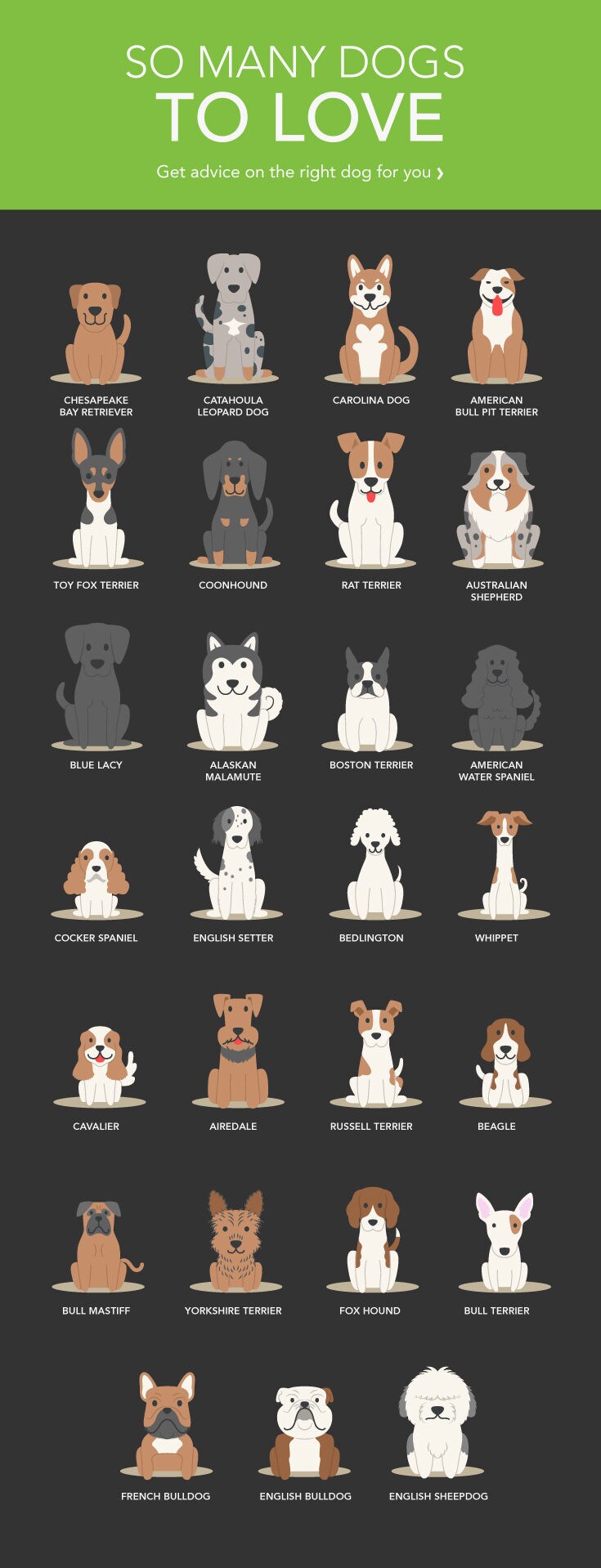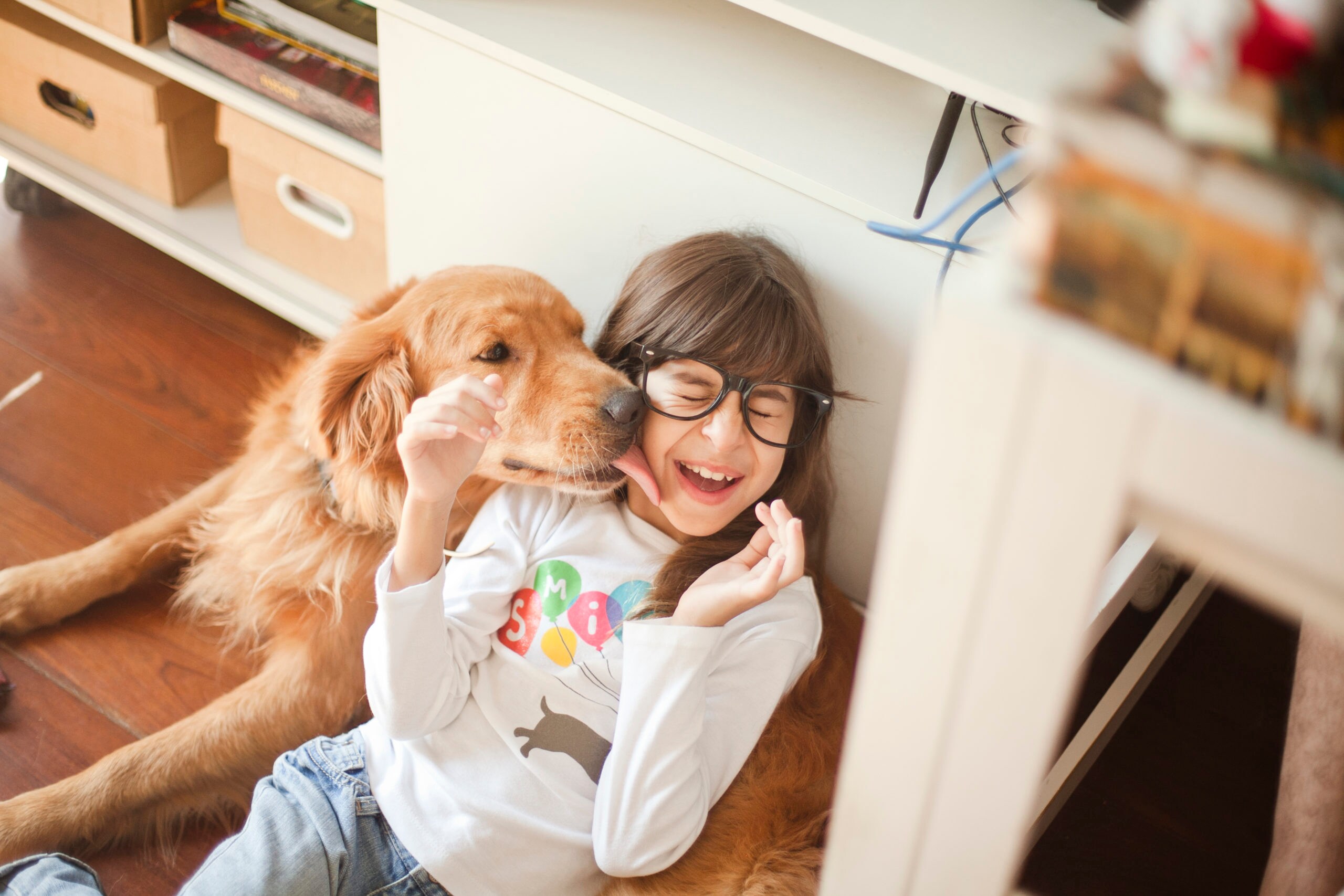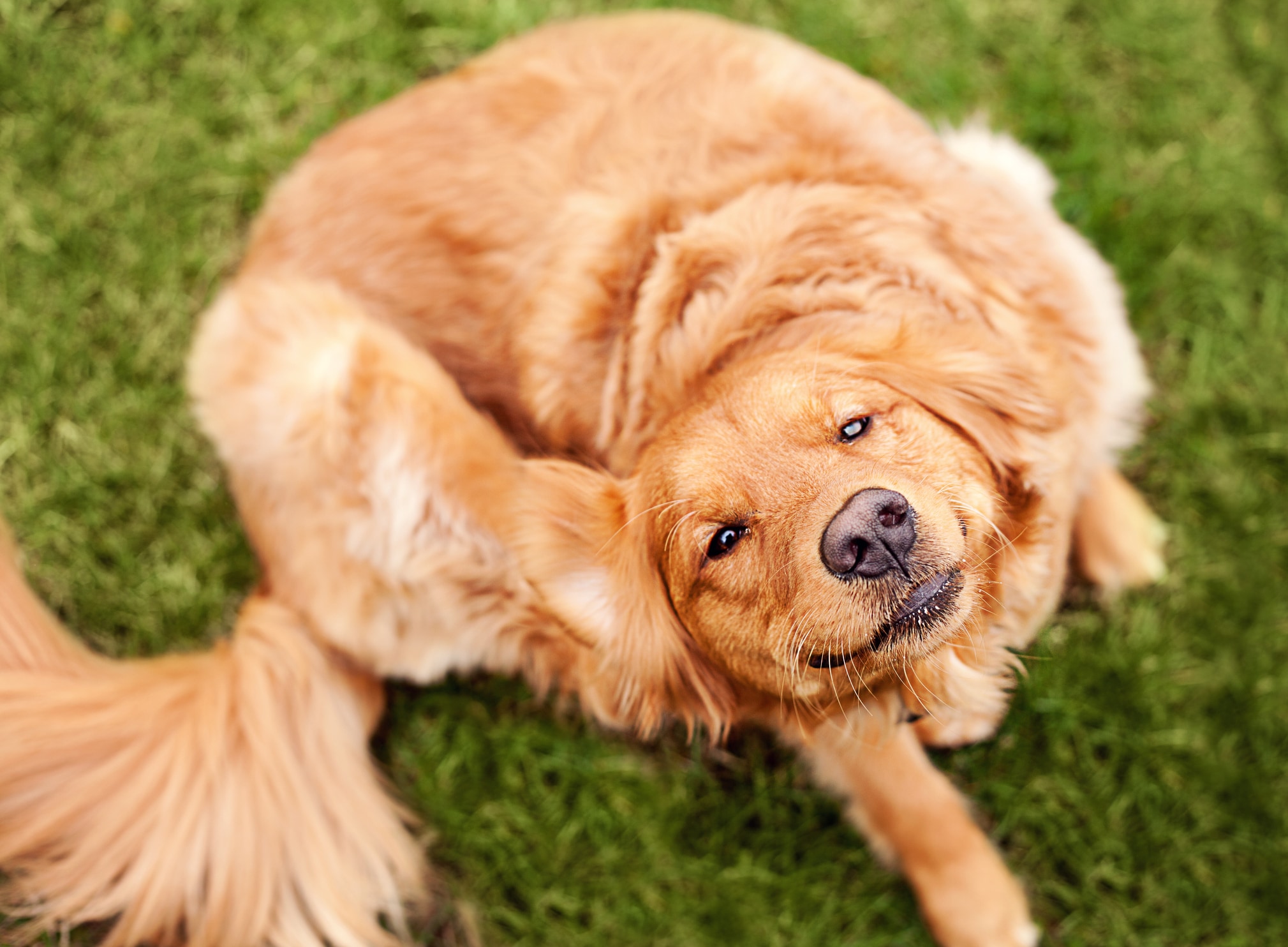Have you been asking yourself, “What kind of dog should I get?” If so, there are a variety of factors that you need to consider. From cost restrictions to a willingness to live with fur galore, your requirements set the stage for ending up with the dog that’s just right for you.
What Kind of Dog Should I Get?
Here are 10 things to think about in your search for the right canine companion:
- Perfect Size
There’s more to finding a dog that’s the perfect fit than deciding between a small or large breed. “We chose a springer spaniel because we were looking for a larger dog, but not one that was humongous,” says Chuck Goldstein of Medford, New Jersey. “He’s about 40 pounds, which is bigger than our last dog, but not too big.” Be sure to think about which size would be just right for you!
- Matches Your Lifestyle
It’s important for you to consider what type of canine companion will fit best into your particular lifestyle. For instance, if you’re an active person on the hunt for a jogging partner, you should try to find an energetic dog, such as a border collie.
- Breeders or Shelters
Breeders aren’t the only way to go! According to the American Society for the Prevention of Cruelty to Animals (ASPCA), about 3.9 million dogs enter animal shelters throughout the United States every year. When Jonna Swanson of Minneapolis, Minnesota, decided to get her mixed breed, she determined that a shelter rescue would be best for her. “I got her because she was an older dog that badly needed a home.” Be sure to think about whether or not adoption is right for you!
- Purebred or Mixed Breed
If you’re set on a very specific standard, a purebred dog — such as a standard poodle or Pomeranian — may be the only way to go. But, if you’re open to a mash-up of a few different types of pups, you should consider a mixed breed. When making this decision, you should keep in mind that some purebreds can come with a higher risk of genetic disease and problematic medical conditions due to questionable breeding practices.
- Ability to Get Along Well With Children
Even if you’re child-free, the ability to play nice with the kiddos may still be a factor. Is your six-year-old niece stopping by? An easygoing, child-friendly canine, such as a beagle, cuts down on your stress level in the event that you take your furry friend anywhere that’s frequented by kids.
- Level of Shedding
When searching for the perfect dog, it’s important for you to think about coat type and grooming needs. And don’t assume that a short-haired dog equals no grooming or shedding! This all depends on breed. If you’re looking for a hypoallergenic dog that rarely sheds, you may want to consider the bichon frise.
- Personality
What type of personality are you looking for in a canine companion? Do you want a furry friend who is loyal and loving? If so, look no further than the Pomeranian, which makes a great family pet, according to the American Kennel Club (AKC). Taek Nam of Pittsburgh, Pennsylvania, says of his Pomeranian: “She always looks at me in that totally loving way. And she loves affection — being petted all the time.”
- Lifelong Costs
Some dogs cost hundreds of dollars — or more — up front, while you can bring other canine companions into your home free of cost. However, it’s also important to take into consideration how much a dog will cost over a lifetime. Remember to think about the amount of food, grooming and training that a particular puppy will need in the long term. Based on these categories, greyhounds are often thought to be low-cost pets.
- Ability to Make the Perfect Travel Companion
Are you a globetrotter (or at least an avid trip-taker)? If so, a dog that gleefully hops into the car or sits tight on a flight is the best option for you! Small breeds, such as Chihuahuas, often make terrific travelers.
- Independence
If you work long hours or are out for a large majority of the day, your dog will be on her own a lot. In this scenario, you will need to search for a dog that is independent and doesn’t need constant care or attention. The basset hound’s low-key personality could make this breed a great choice for you!
Throughout your search, it’s important to remember than no dog is perfect, but there is a variety of steps you can take to try to find one that fits you and your lifestyle. Before choosing his American bulldog, Greg L., from State College, Pennsylvania, talked to the breeder to get more information. “I saw pictures of his parents and got to know what to expect.” Greg took stock of what he wanted in a dog and matched it to the breed that was right for him.
If you’re not sure where to start in your journey to find a new dog, you should try rating each individual factor on this list on a scale of 0 to 10 (with 10 being the most important). Then, reorder the top 10 factors from most important to least important based on these ratings. By setting up the list in this way, you can clearly see which types of features and traits you should look out for while on the hunt for your new canine companion.
And Read Breeds of Dogs — How Do You Find the Right One for You?
Erica Loop is the mom to one teenage son, two Olde Boston bulldogs and one very shy cat. She’s also a freelance writer, educator and the creator of the blog Mini Monets and Mommies.





